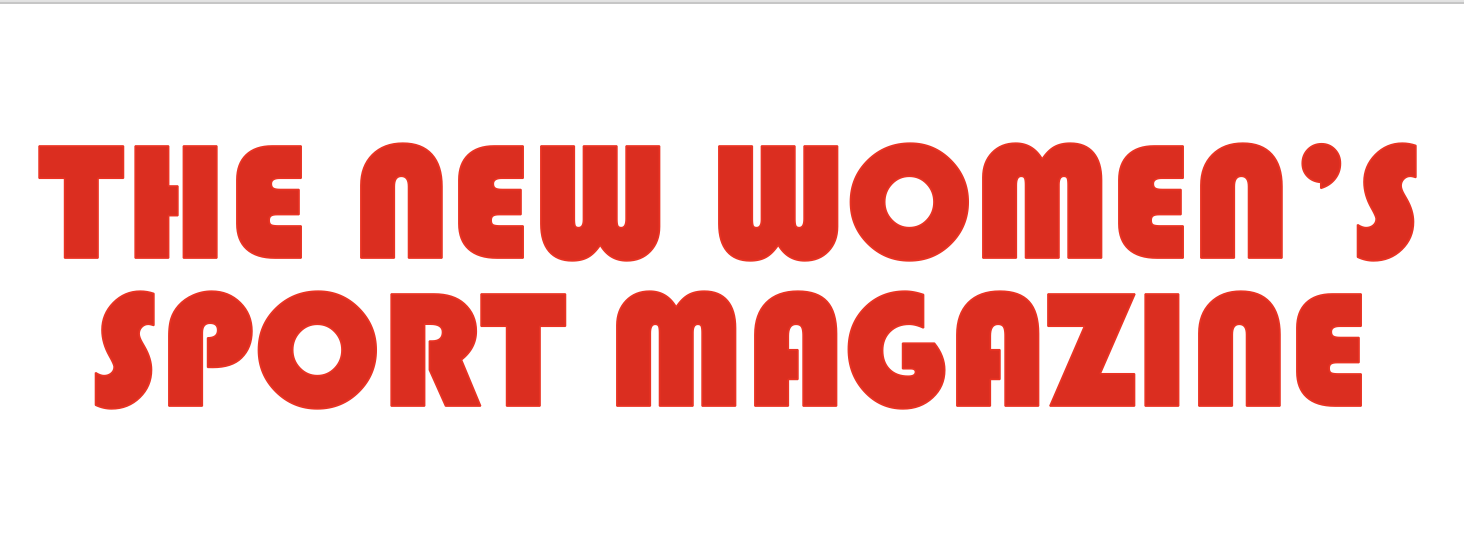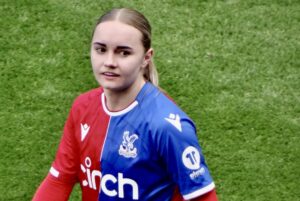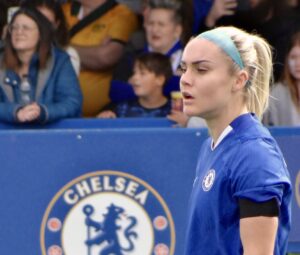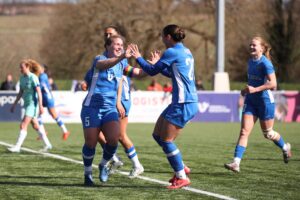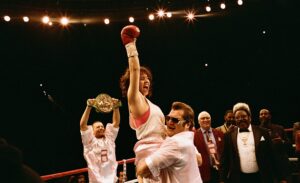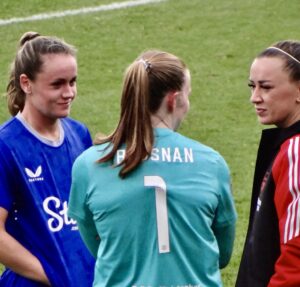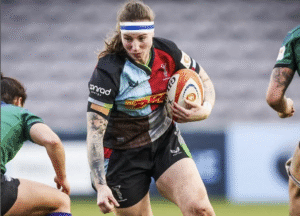THE OMG MOMENT – Why we need to talk about boobs
“Too tight under the arms”, “my straps dig in”, “my boobs aren’t supported”. These are all complaints that girls shoulder to be able to play sport, as our writer Olivia Franks discovered.
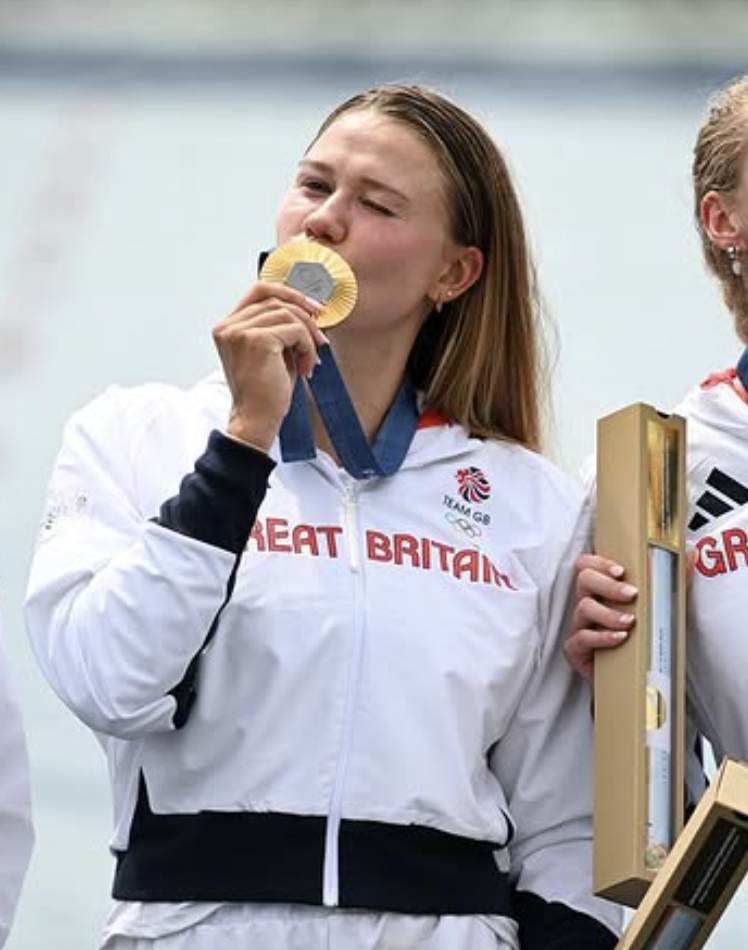
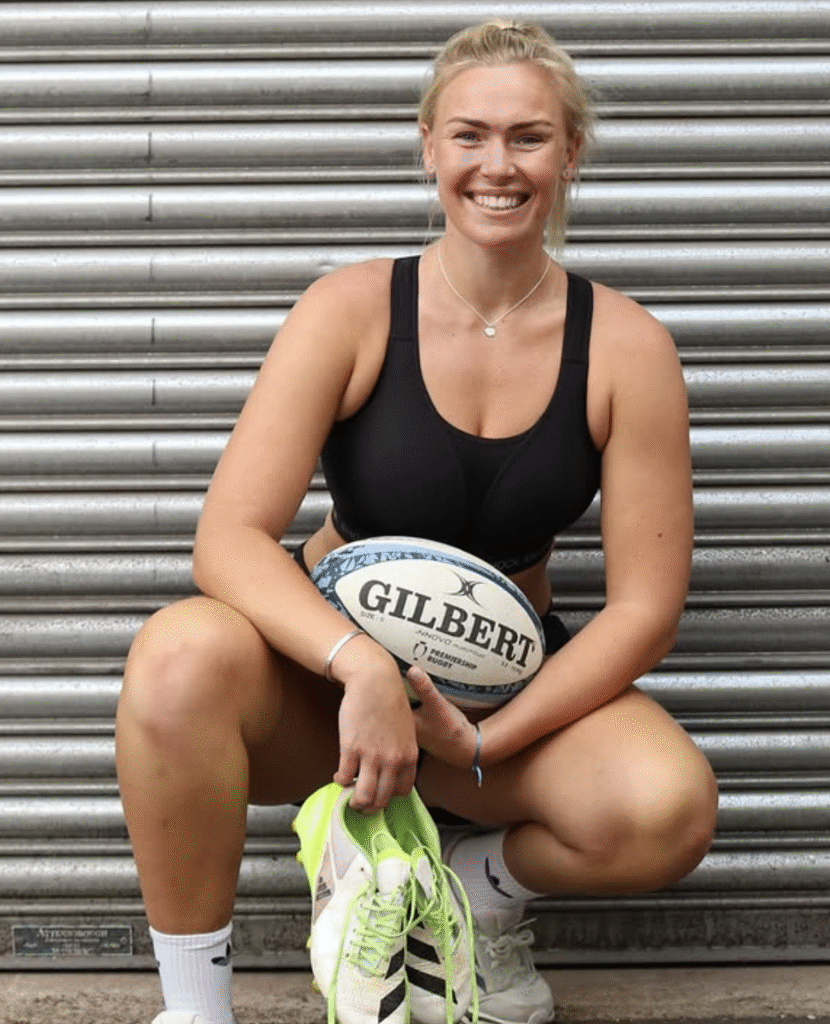
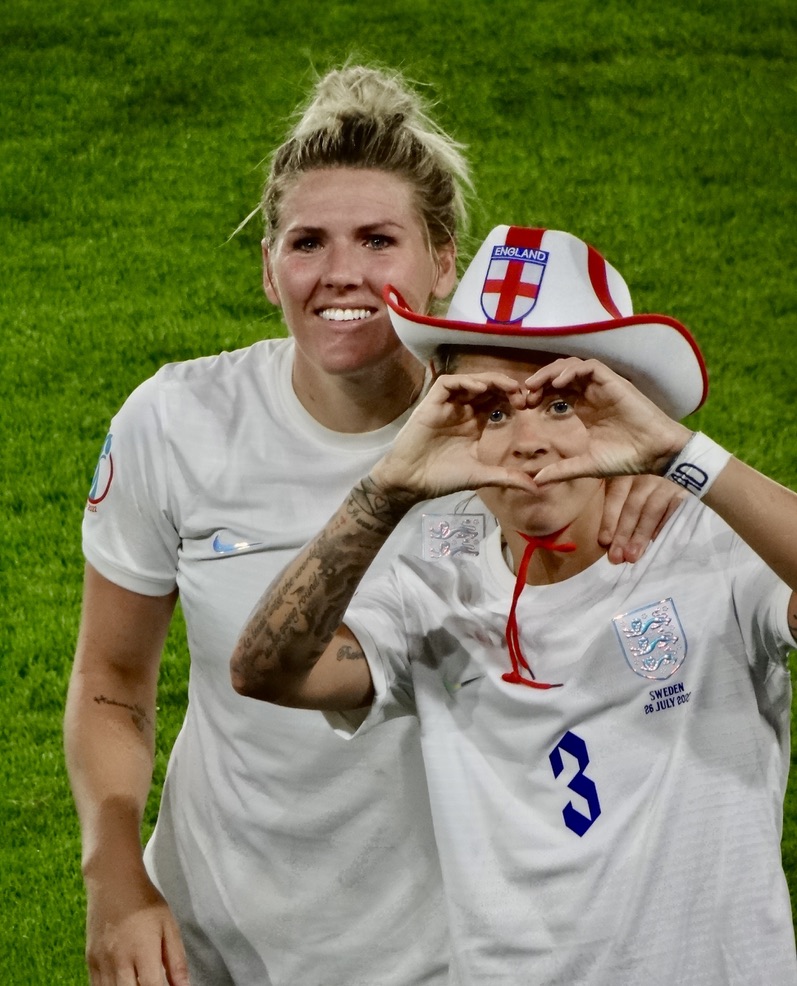
Whatever the breast size, sportswomen have always had to wrestle with sports bras.
Millie Bright (above, right, with Rachel Daly) won the Euros in 2022 while wearing two sports bras, because she felt one wasn’t supportive enough.
Some, like professional rugby player Rosie Galligan (above, centre), have had breast reductions to combat the discomfort.
Saracens lock Galligan told us: “For me, it was a no brainer.
“Mine was for performance factors as well as feeling a bit insecure in my body. I had a bad back and wanted to try and make it as far as I could in sport, and I thought that it was hindering me.”
The consequences can be golden. A jubilant Galligan lifted the World Cup in September alongside her Red Roses teammates.
Confidence
More than one in two (58%) of girls aged 14-15 report a lack of confidence as the reason they quit sport, according to recent studies.
So much of this stems from how ill-fitting sports bras negatively impact girls’ image and performance.
Olympic champion and GB rower Lola Anderson (above, left) told us: “The right sports bras have a huge impact on my performance. They gave me an extra 15 degrees worth of rotation in my body.
“Our gold medal was won by 0.04 of a second. And for me, that’s literally my sports bra. That’s it.”
Following a suggestion from her agent, who had studied at Portsmouth, Lola Anderson took part in the University of Portsmouth breast study.
Using female volunteers from all walks of life, the research group tests sports bras. They are then ranked within a database that holds more than 400 types of specialist and high street sports bras.
Anderson spoke to Olivia Franks following the experience.
The 27-year-old said: “The initial part was having a scan in different positions without any sports bra or top on. And then from there, we attached the electrodes onto me and ran on the treadmill with no sports bra on. It was very thorough.
“The sensor tracking me showed at what point of my stride that I was using my body to interfere and to try and self-support without any actual equipment on.”
Fighting
When asked about her motivation for taking part in the study, the World and Olympic Champion spoke about the need to make it normal and not a “stigmatised conversation”.
Anderson said: “And for female athletes, if you’re constantly fighting your body, you’re never going to be owning and living your ultimate performance and your ultimate potential.”
It can even cause injuries.
Anderson stated: “If you wear the right sports bra and if you’re in the right posture, that should and does decrease the amount of rib injuries that we see.”
“The right fitting sports bra makes me feel so much more confident because I used to get so embarrassed about the idea of, oh, no are we going to be jumping today?”
That’s why PEBE, a female-founded sports bra company, stepped in.
The sports bra company, ranked top in the University of Portsmouth sports bra study, “centres around the adjustability that allows girls to fluctuate and grow”.
PEBE created bras that have adjustable straps so that asymmetrical breasts and breast size fluctuation during puberty, pregnancy and menopause can be dealt with through a single bra.
Co-found Lucy Horsell said: “I mean, it’s not rocket science, is it? We need to look at the overall movement.”
As well as partnering with elite programmes like Bristol Bears Women’s Rugby and the military, PEBE goes into schools to deliver bra fittings and educate girls on breast tissue movement.
“I do think that of all the reasons why girls may feel not good enough, overwhelmed, intimidated – why they hesitate – sports bras should not have a place on that list.”
Sidelined
PEBE also took part in Regent Street’s pop-up shop called Style Of Our Own. They brought in a treadmill for women to test out their new sports bras. Charlotte Gill, the other co-founder, even took to the treadmill two days before giving birth.
Horsell said: “We always call it the OMG moment. Everyone we fit will go: Oh, my God. Oh, my God, I don’t feel like I’ve got any boobs. And they say that in a really positive way.
This is extremely pertinent, given that a Women in Sport survey found 43% of girls who once considered themselves ‘sporty’ drop out of sport after primary school.
The study found that there is a sense girls feel ‘sidelined’ from sport in their teens.
“It was just brilliant to show that every woman’s body deserves to be able to move regardless of age.
“I think the most powerful thing you can do is put your money where your mouth is and create a product.”

